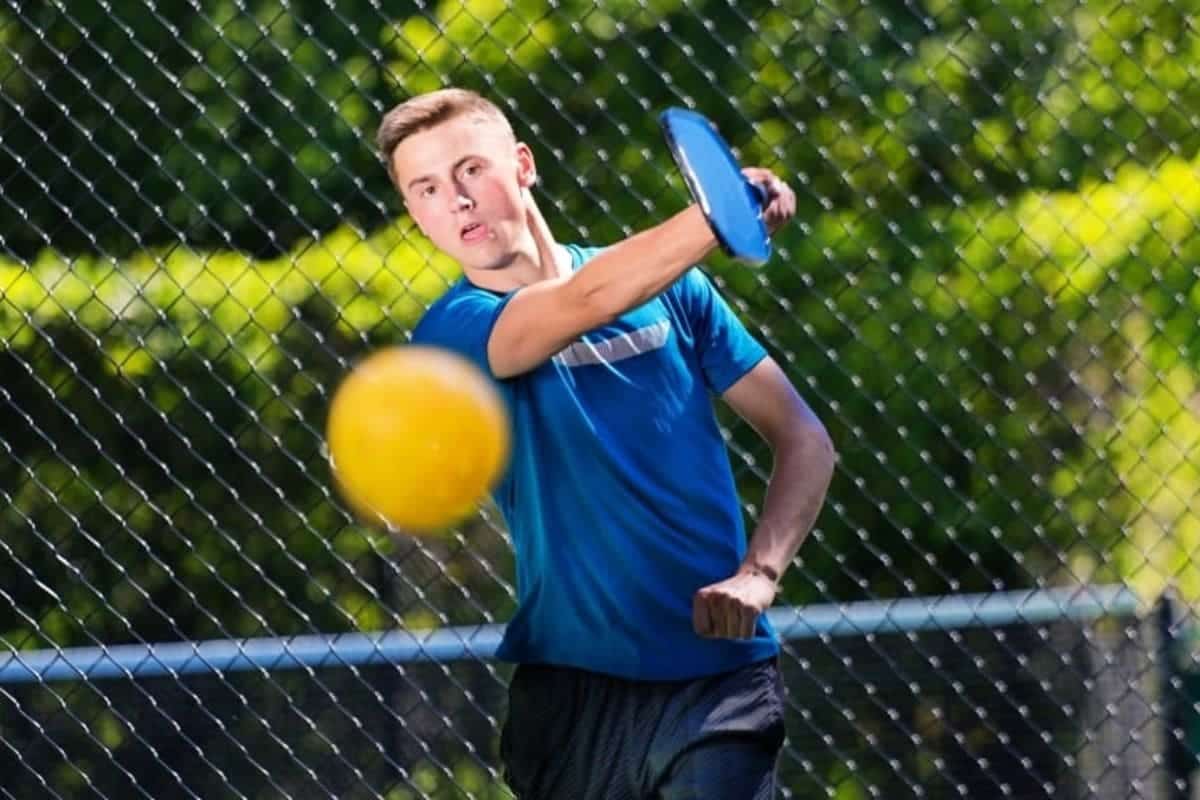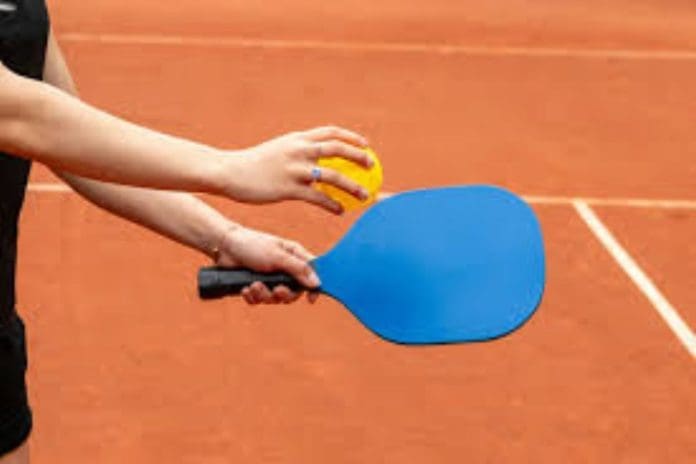Navigating Open Play in Pickleball: Open play in pickleball is more than just a casual game; it’s a thriving community event where players of all skill levels come together to enjoy the sport. Unlike structured tournaments or leagues, open play offers a relaxed environment where the focus shifts from competition to friendship and personal growth. Navigating open play in pickleball can be a nuanced challenge when caught between varying skill levels. Finding oneself in a zone that feels either too easy or too challenging can detract from the enjoyment and growth that open play offers. Here is a practical guide to help individuals make the most out of their open-play experience.
The Spirit of Open Play
The spirit of open play sessions forms the cornerstone of the pickleball community, offering a haven where players can participate in amiable matches devoid of competitive rigor. Within these sessions, inclusivity thrives as beginners absorb insights from seasoned players, while experts refine their techniques in a relaxed environment. The advantages are evident: building friendships, honing skills, promoting physical activity, and savoring the sport with autonomy, all contributing to enhancing the pickleball experience.
Balancing Skill Levels in Pickleball: A Strategic Approach
Encountering sessions where the skill level feels either too basic or too advanced is a familiar experience for many players. How one handles this situation can greatly influence their enjoyment and progress in the game. Here’s how to balance skill levels effectively when navigating open play in pickleball:
Know Your Skill Levels in Pickleball
Starting with an honest assessment of one’s abilities is crucial in navigating the pickleball skill levels. If the 2.5-3.0 bracket feels too elementary while the 3.0-3.5 tier appears challenging, the player may find themselves on the threshold of the lower end of the higher range. This understanding enables informed decisions about where to concentrate efforts and strategies for improvement.
Embrace Both Levels
Diversifying participation across different skill levels in pickleball offers players a more comprehensive range of experiences. Lower-level sessions can be utilized to refine specific skills and practice techniques in a relaxed, non-competitive atmosphere. Meanwhile, engaging in higher-level sessions provides opportunities to challenge oneself against stronger opponents, thereby fostering growth and elevating one’s game to new heights.
Focus on Skill Development
When playing at a lower skill level, players should seize the opportunity to focus on specific aspects of their game. Whether it’s refining dinks, improving resets, or working on other fundamental techniques, these sessions are ideal for setting personal goals and honing skills. Rather than fixating on the outcome of matches, players are encouraged to concentrate on making tangible improvements in their gameplay.
Welcome the Challenge
Experiencing more losses in higher skill-level sessions is natural, yet it’s within these challenges that significant growth occurs. Competing against stronger opponents compels players to adapt and elevate their gameplay. Embracing these challenges as invaluable learning experiences, rather than solely fixating on winning, fosters substantial improvement and development in the game.
Practice Respectful Etiquette
Respect and sportsmanship remain vital, irrespective of the skill level at which one plays. In lower-level sessions, it’s important to be mindful not to overpower partners and instead view games as opportunities for skill practice and development. In higher-level matches, respecting opponents’ abilities is crucial, approaching each game with a readiness to learn and adapt. This mindset not only enhances personal growth but also fosters a positive environment for all players involved.
Prioritize Improvement Over Winning
The ultimate goal in pickleball is to always prioritize improvement over mere victories. Both wins and losses offer valuable lessons, pinpointing specific areas requiring development. Players are encouraged not to avoid challenging games where they might struggle; instead, they should embrace these opportunities as chances to identify weaknesses and effectively overcome them, thus fostering continuous growth and advancement in their game.
Stay Positive and Open
Maintaining a positive attitude and remaining open to feedback can greatly enhance the learning process in pickleball. Regardless of whether one is at a lower or higher skill level, being receptive to advice and constructive criticism accelerates personal growth and development. By embracing feedback, players can refine their techniques, broaden their understanding of the game, and continuously improve their performance on the court.
Communicate with Your Club
If uncertain about navigating different skill levels, players should consider discussing their concerns with the club’s coordinator or a more experienced player. These individuals can provide valuable insights and additional strategies to effectively balance their play across various skill-level sessions. Seeking guidance from seasoned members of the community ensures players can make informed decisions and optimize their pickleball experience.
Participating in both lower and higher-skill-level sessions is not only acceptable but beneficial. Use the lower level sessions for practice and the higher level ones for challenge. This balanced approach will provide a comprehensive pickleball experience, helping you grow as a player while enjoying the game. In open play, it’s not just about the score; it’s about community, development, and the joy of the sport. So, embrace the opportunity, communicate openly, and keep your game growing.

News in Brief: Navigating Open Play in Pickleball
Open play in pickleball offers a community-oriented environment where players of all skill levels can enjoy the sport. To navigate different skill levels effectively, Open play pickleball tips include assessing your abilities and participating in both lower and higher-skill sessions. Lower-level play allows for skill refinement, while higher-level challenges provide opportunities for growth.
Respectful etiquette, a focus on improvement over winning, and openness to feedback are crucial for personal development. Seeking guidance from club coordinators or experienced players helps in balancing skill levels in pickleball, enhancing overall enjoyment, and fostering continuous improvement in the sport.

